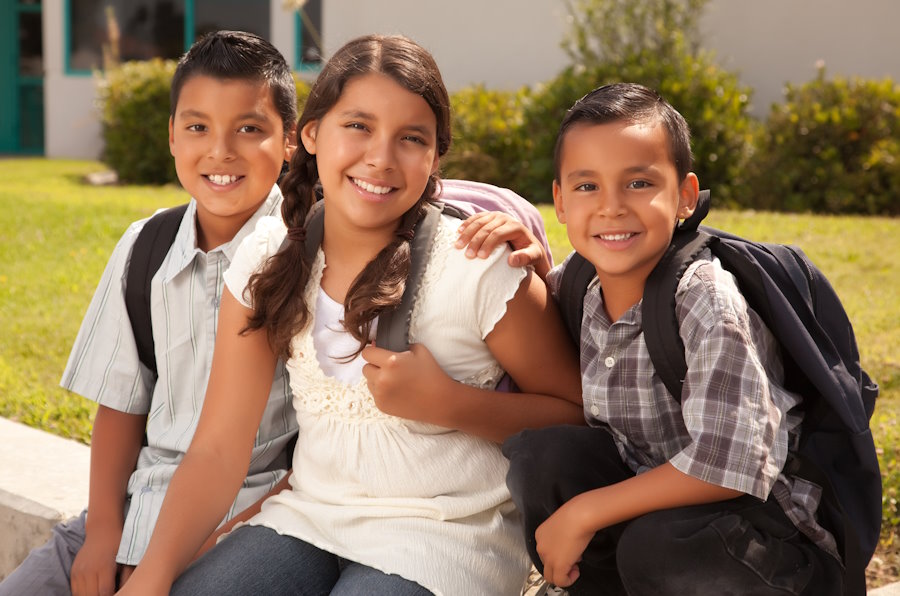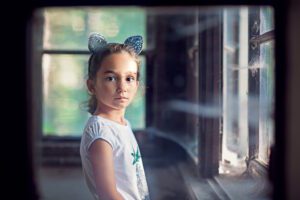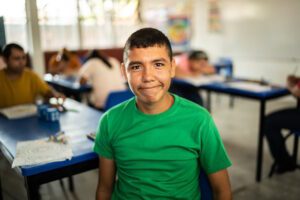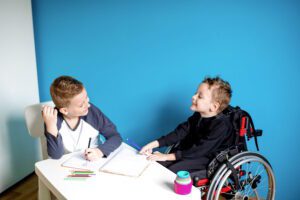Adoption from Bulgaria
Adopting from Bulgaria
In an effort to advocate for as many Bulgarian children as possible, Hopscotch has partnerships with Family National Association, Happy Child, and Rose of the Heart NGOs in Bulgaria. All of these associations are accredited and insured Bulgarian Foundations. Our partner Foundations come to Hopscotch with much experience and are highly regarded.
Children Eligible for Adoption
Our Bulgaria child adoption program brings to you children from the age of 12 months through 16 years though most children are at least 2 years of age at homecoming. Many Bulgarian sibling groups are cleared for international adoption and can be matched to families in the traditional referral process or as identified waiting children. Unrelated Bulgarian waiting children may be adopted in the same process case by case. A very high percentage of Bulgarian children referred to international adopters is of Romani and Turkish descent. At least three fourth of all referrals have special needs of varying degrees, whether they be medical, developmental, related to mental health, or lie in a child’s advanced age or being part of a sibling group.

Traditional Referral Process
 Families seeking a relatively healthy Bulgarian child, particularly between the ages of 1 and 5, should expect to wait for a referral for approximately six years from dossier registration with the Bulgarian Ministry of Justice, Bulgaria’s Central Adoption Authority. Referrals for relatively healthy children between the ages of 6 and 9 currently have an approximate referral wait times of three to five years. Relatively healthy children ages 10 and up, large sibling groups, or children with special needs may be referred much faster. The Bulgarian Ministry of Justice is dedicated to pairing children with appropriate families and makes its best effort to refer children who correspond to a family’s stated gender, age, and health parameters.
Families seeking a relatively healthy Bulgarian child, particularly between the ages of 1 and 5, should expect to wait for a referral for approximately six years from dossier registration with the Bulgarian Ministry of Justice, Bulgaria’s Central Adoption Authority. Referrals for relatively healthy children between the ages of 6 and 9 currently have an approximate referral wait times of three to five years. Relatively healthy children ages 10 and up, large sibling groups, or children with special needs may be referred much faster. The Bulgarian Ministry of Justice is dedicated to pairing children with appropriate families and makes its best effort to refer children who correspond to a family’s stated gender, age, and health parameters.
However, on occasion a child may be referred that is outside of the family’s USCIS approval or personal parameters. In such cases, the family is never obligated to accept the referral. A subsequent referral will be issued by the MOJ, but there is no guarantee how soon a second referral will be received. Each referral is made with substantial medical and social records for your review. Many waiting children are available from Bulgaria and from time to time, Hopscotch may present a family with the profile of a waiting child for consideration. Please see below for more information about the Waiting Child Process.
 All children referred to families will have experienced the effects of institutional upbringing. These experiences will impact children in various ways and to various extremes, some of which are evident at referral and some of which only become known as the child grows and is expected to meet particular developmental milestones for their chronological age. Institutional care can impact physical, emotional, psychological, cognitive, educational, social, and motor development as well as the child’s ability to attach to a parent or other meaningful persons in their life. Children experience trauma from utero and throughout their lives which often goes unreported, not because the Central Authority wishes to withhold information from prospective parents, but because many circumstances or events happen outside of their purview or knowledge. One can expect that a child placed in institutional care has experienced neglect, abandonment, abuse, possible sexual abuse, verbal abuse, emotional abuse or even therapeutic abuse. Some or all of this may or may not be known to the orphanage, the Central Authority, the Foundation partner, Hopscotch and in turn, may not be able to be disclosed to you, if not known to anyone before the child is placed with you. It is best to always prepare for the worst case scenario.
All children referred to families will have experienced the effects of institutional upbringing. These experiences will impact children in various ways and to various extremes, some of which are evident at referral and some of which only become known as the child grows and is expected to meet particular developmental milestones for their chronological age. Institutional care can impact physical, emotional, psychological, cognitive, educational, social, and motor development as well as the child’s ability to attach to a parent or other meaningful persons in their life. Children experience trauma from utero and throughout their lives which often goes unreported, not because the Central Authority wishes to withhold information from prospective parents, but because many circumstances or events happen outside of their purview or knowledge. One can expect that a child placed in institutional care has experienced neglect, abandonment, abuse, possible sexual abuse, verbal abuse, emotional abuse or even therapeutic abuse. Some or all of this may or may not be known to the orphanage, the Central Authority, the Foundation partner, Hopscotch and in turn, may not be able to be disclosed to you, if not known to anyone before the child is placed with you. It is best to always prepare for the worst case scenario.
It’s important to contract with an International Adoption Pediatric Specialist once you are presented with a referral from Bulgaria’s Ministry of Justice to help you evaluate the referred child. The Specialist can help you assess your own suitability to parent the specific child through the lens of where the child is developmentally from institutional care and based on his/her diagnoses. A regular pediatrician would not be best suited to evaluate a child from institutional care given many factors will appear to be red flags unnecessarily or alternately not raise a red flag that should be taken into consideration due to the child’s unique tough start. For example: Children lose one month of physical growth for every 3-4 months in an orphanage. Standard growth charts cannot be used to document growth rate www.cdc.gov or www.who.org. Even apparently well-nourished children may have serious nutritional deficiencies. Nearly all adopted children show rapid physical catch-up within six months; if delays persist, your pediatric specialist would guide you to consider treatment and intervention.
 The known health risks specific to the Bulgarian people and to be considered by adoptive families include RH blood type which is a rare blood type, hemophilia, chronic illnesses related to high incidences of alcohol abuse, diabetes, high cholesterol, insufficient physical activity, obesity, heavy smoking, ischemic heart disease, cerebrovascular disease, hypertensive heart disease and other cardiovascular conditions, Alzheimer disease, lung cancer, COPD, colorectal cancer as reported by the Borgen Project. Measles and rubella are reportedly on the rise. One report shared that Bulgarians are pre-disposed to addiction to gambling. The life expectancy averages 74 years of age.
The known health risks specific to the Bulgarian people and to be considered by adoptive families include RH blood type which is a rare blood type, hemophilia, chronic illnesses related to high incidences of alcohol abuse, diabetes, high cholesterol, insufficient physical activity, obesity, heavy smoking, ischemic heart disease, cerebrovascular disease, hypertensive heart disease and other cardiovascular conditions, Alzheimer disease, lung cancer, COPD, colorectal cancer as reported by the Borgen Project. Measles and rubella are reportedly on the rise. One report shared that Bulgarians are pre-disposed to addiction to gambling. The life expectancy averages 74 years of age.
Child death causes in Bulgaria, reported by WHO are listed as: HIV, diarrheal diseases, measles, meningitis/encephalitis, malaria, acute lower respiratory infections, prematurity, birth asphyxia and birth trauma, sepsis and other infectious conditions of the newborn, other communicable, perinatal and nutritional, conditions, congenital anomalies, other non-communicable diseases, and other unnamed injuries.
Waiting Child Process
If a family wishes to pursue the adoption of an identified waiting child (photo listed on Hopscotch’s waiting child protected page, Rainbow Kids, or elsewhere) after having reviewed the child’s redacted medical and social reports with an international adoption specialist, a simple notarized application package can be submitted to the Ministry of Justice. This demonstrates you understand risks associated specific to the health of children in Bulgaria as well as specific to the child you intend to adopt. After review by the Ministry of Justice, your application for the specific waiting child will either be approved or denied. The former is far more common and will lead to the child’s file being placed on hold for you for six months by the Ministry of Justice. A family would then complete and submit a full apostilled dossier in the six months’ time frame followed by receiving the official referral for the child. The remainder of the process would mirror that of a traditional referral, without a referral wait time.
Eligible Applicants
 Generally, married heterosexual couples, single women, and on rare occasions, single men are permitted to adopt. Prospective adoptive parents must be at least fifteen years older than their adoptive child and the maximum age difference between adoptive parent and child must not exceed 50 years. If married, the age requirements may be fulfilled by only one spouse. Bulgaria accepts large families and parents who themselves may have medical diagnoses. Hopscotch is currently accepting applicants for this program.
Generally, married heterosexual couples, single women, and on rare occasions, single men are permitted to adopt. Prospective adoptive parents must be at least fifteen years older than their adoptive child and the maximum age difference between adoptive parent and child must not exceed 50 years. If married, the age requirements may be fulfilled by only one spouse. Bulgaria accepts large families and parents who themselves may have medical diagnoses. Hopscotch is currently accepting applicants for this program.
Program and Process
Our Bulgarian child adoption program offers many options for parents. Approximate time frames to complete an adoption greatly depend on the child you desire to adopt. In essence, families expecting to adopt younger and healthier children can anticipate a longer process and families adopting older children, or children with special needs, can expect a shorter process. Typically for a relatively healthy child under the age of five, parents should expect the process to take at least six years from the point of dossier registration with the MOJ. Parents hoping to adopt waiting children with moderate to severe special needs or upward of ten years old may be able to complete their process in about 12-14 months from dossier registration in Bulgaria.
One or both parents need to make two short trips to Bulgaria, the first being approximately 7 days and the second trip approximately 10-12 days, longer if adopting children from separate regions. Families may also request their child to be escorted to the US after the child has received a US entry visa. Each case will be unique and a quote of escort expenses can be made only at the time the child is ready to enter the US. Visas are not required for travel to Bulgaria.

Hopscotch will guide client families in preparing the notarized and apostilled dossier as well as provide required Hague training, referral counseling, and travel assistance. Once Hopscotch receives the complete dossier, we will send the dossier to the Foundation and the Foundation submits the dossier to the Ministry of Justice. A family pursuing a traditional referral will then be registered among other waiting families and begin the referral wait. A family pursuing the adoption of an identified waiting child will quickly receive the official referral. Referral information is provided to the family by the Foundations via Hopscotch. Once Hopscotch receives referral documents from the Foundation, you may review the information and we urge you to consult with an International Adoption Specialist Pediatrician. If you accept the referral, your acceptance request is sent back to Bulgaria and, if approved, more information on the child will be provided to you if necessary. Next, you will be invited to Bulgaria, for an approximately 7 day trip, to meet your referred child and decide to formally accept the referral. All documents pertaining to your acceptance or declination will be submitted by your in-country coordinator to the Bulgarian Ministry of Justice.
After your decision has been made, you will return to the US. Hopscotch will then assist you in filing the remaining paperwork with the US government, followed by the final approval of your adoption by MOJ and then court in Bulgaria. Your interests will be represented by our partner Foundation’s attorney. Finally, you will be invited for your second trip of approximately 12 days, which is scheduled roughly four to six months after the first trip. Once you are notified to return to Bulgaria to pick up your child, appointments will be secured for your child to have a US embassy panel physician’s medical examination and to apply for your child’s IH-3 or IH-4 visa.
Post Adoption Requirements
Upon arrival home, complete this Department of State’s case data verification form and make sure your social worker is aware and your first post adoption report visit has been scheduled. Keeping on schedule for your post adoption reporting is critical to the ongoing opportunity for other eligible children in Bulgaria to have a loving family such as yours!
Post adoption reporting is required by Bulgaria and Hopscotch Adoptions as a part of your contractual relationship with the country and agency. You can expect to participate in reporting at 6 months, 12 months, 18 months, 24 months, 30 months and 36 months after returning home with your child. All reports must be generated by a social worker and must include 8-10 color photos. All reports must be signed by the social worker or the social worker’s supervisor, notarized, and apostilled. If the family is delayed in providing the report, the NGO will invoice the family for express shipping and translation fees.
The Country
Bulgaria shares borders with Serbia, Macedonia, Romania, Greece, and Turkey. Two mountain ranges and two great valleys mark the topography of Bulgaria, a country the size of Tennessee and situated on the Black Sea. The Maritsa is Bulgaria’s principal river, and the Danube also flows through the country. Interestingly, Bulgaria has dominated the world market of rose oil so precious to the perfume industry for many years. The rose-growing area between Klisura and Kazanlak produces seventy percent of the world’s attar – or extract – of roses. Considering that perfumeries pay more than $45 million a year for this product, it’s not surprising that roses are known as “Bulgaria’s gold.”
Bulgarians are warm and hearty people, renowned for their hospitality to foreigners, famous for their respect and good will toward their guests and visitors. They are ready to open their hospitable doors to those willing to share the rich traditions and folklore, agricultural activities, preserved old crafts, and delicious and varied local cuisine.
Bulgarian is a southern Slavic language that uses the Cyrillic alphabet. Bulgarian is mutually intelligible with Macedonian (considered a variant of Bulgarian by many Bulgarians) and also closely related to Serbo-Croatian. Russian and other Slavic languages are more distantly related but still similar. If you know any of these, you shouldn’t have many problems getting by. It is also important to remember the fact that many Bulgarians – contrary to most nationalities – shake their head for Yes and nod for No! It is better to rely on the words “da” for yes and “ne” for no than on head movements.
Turkish is spoken natively by the Turkish minority of Bulgaria who comprise nearly 9% of the Bulgarian population and live mostly in the Southern mountains and the further Northeast. The Romani people who make up about 5% of Bulgaria’s population speak a variety of Indo-Aryan languages.
Country Post Adoption or Post Placement Requirements (PDF)
Fees
Contact Hopscotch Adoptions directly to request a fee schedule
Recommended Reading
A Gift From The Heart: Folk Tales From Bulgaria by Radost Pridham
Bulgaria (Eyewitness Travel Guide) by DK Publishing
Classic Recipes From Bulgaria, Romania, Croatia & Slovenia: Over 70 deliciously authentic traditional dishes shown step-by-step in 250 simple-to-follow photographs by Lesley Chamberlain
Bulgaria – Culture Smart!: The Essential Guide to Customs & Culture by Juliana Tzvetkova
Recommended DVDs
The First World War – The Complete Series starring Archduke Franz Ferdinand and Jonathan Lewis
Rick Steves’ Europe: Bulgaria, Eastern Turkey, Slovenia and Croatia 2000
Recommended Links
Documentary on Bulgarian Adoption